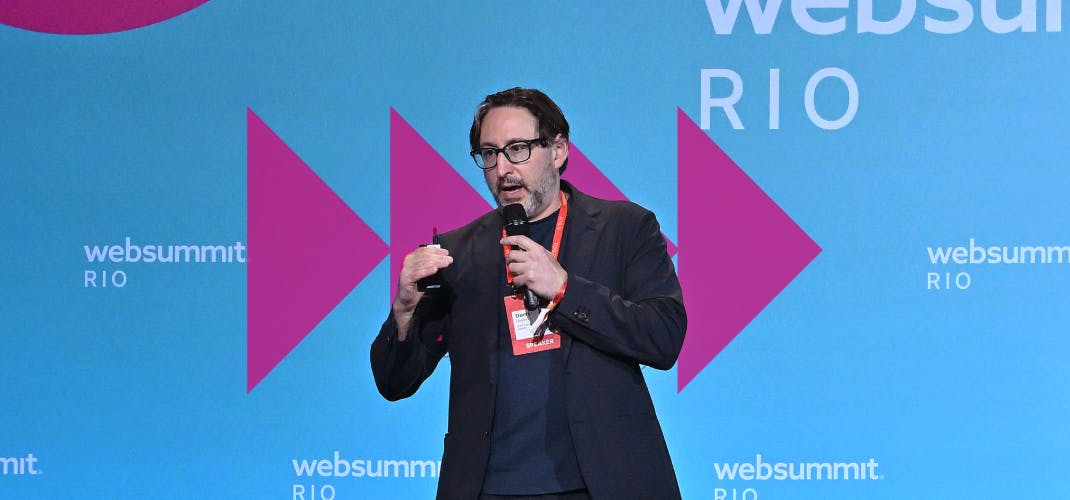
An AI revolution has been happening right under our noses

As a result of the increased popularity of deeptech and artificial intelligence, the science, tech and healthcare industries are undergoing massive transformations.
ChatGPT didn’t introduce AI to us. AI has been seamlessly integrated into our everyday lives, from social media algorithms to web functions and suggested ads.
The difference now? We’re seeking it out ourselves.
AI is changing the way we make decisions, treat the ill, and invest in the future.
Are AI and pigs the future of transplantation?
According to NYU Langone Health professor of epidemiology and surgery Dorry Segev, only around 10 percent of people who need organ transplants actually get them.
“We have too many people and not enough organs. We have to decide who gets the organ and who dies,” said Dorry.
But what if AI could help improve the situation? The tech, Dorry explained, could be used to guide the decisions of medical teams in a more data-driven manner, such as predicting which patients would fare best with the donated organ given medical histories.
“If generative AI can make me a picture of skyscrapers that look like cotton candy, [it] can also help me make a decision,” added Dorry.
Combined with gene editing technology CRISPR, this application of AI could change how organ transplants are done in the near future, especially now that modified pig hearts are being placed in human bodies.
“My prediction is that in five years, we will see this as a very normal thing in organ transplantation. You need a transplant, we raise a pig, that pig organ goes to you,” claimed the professor.
It’s not an AI revolution. It’s a UX design revolution
The conversation around AI is changing, and different people are using the term AI in different ways. So says Google chief decision scientist Cassie Kozyrkov.
“When different people talk about AI, please listen. Who is it, and how are they referring to these systems?” said Cassie.
The buzz and hype around GenAI and large language models is not an AI revolution, but rather a user experience design revolution, claimed the Google scientist.
The AI revolution has been happening under our noses in everything from Netflix recommendations to Gmail’s Smart Compose, but it wasn’t obvious because it was seamlessly integrated.
“[These services] didn’t make you worry about what’s actually happening there under the hood. Now, for the first time ever, the user is encouraged to directly tinker with AI,” explained Cassie.
Although AI has been around for decades, it’s undergoing a paradigm shift from general-purpose tools solving problems at enterprise scale to systems such as ChatGPT, which allows individuals to play around and solve their own specific problems with its assistance.
“You don’t need to be any kind of software engineer or specialist or researcher to do this. This is an individual revolution in productivity that is being handed to you,” said Cassie.
‘There’s some hype, but there’s a lot of reality here’
Cognitive scientist and AI researcher Ben Goertzel is bullish on the future of generative AI – and of artificial intelligence in general.
Acknowledging that many envision a bubble followed by a burst, Ben – who’s also founder and CEO of SingularityNET – said that the same could be said of the US stock market on a day-to-day or month-to-month basis: “In hindsight, when our machine descendants and our cyborg descendants are looking back, it’s gonna look actually like a pretty steady rise of the AI.”
“What we’re seeing is one burst of genuine advance in a series of genuine advances in the AI field,” Ben said of ChatGPT and its ilk.
Investor Itxaso del Palacio had similar optimism for growth in this sector, explaining that AI is delivering on KPIs in a way that wasn’t possible before now.
Daniela Braga, the founder and CEO of Defined.ai, added that there has never been so much investment in AI. US$93.5 billion has been invested in tech in the last year in the US alone – double the previous year’s investment – and the EU Commission has committed €1 billion a year over the next 10 years through the Horizon program.
Don’t miss out on Web Summit Rio 2024. Pre-register for tickets today.
Main image of Dorry Segev, professor of epidemiology and Surgery at NYU Langone Health, on the HealthConf stage during Day 3 of Web Summit Rio 2023 at Riocentro in Rio de Janeiro, Brazil: Piaras Ó Mídheach/Web Summit (CC BY 2.0)



